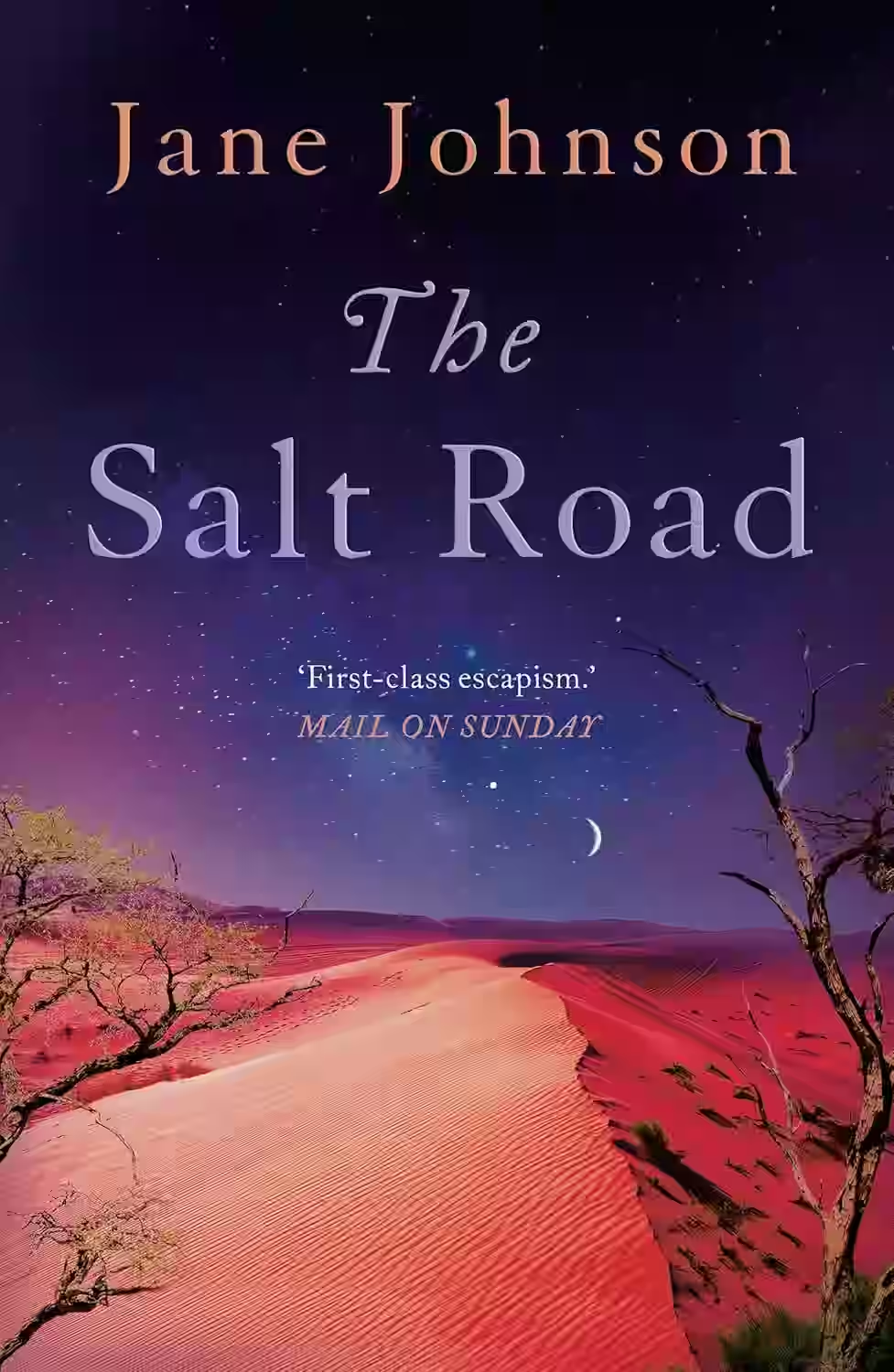
Jane Johnson's novel, 'The Salt Road,' is a mesmerizing tapestry woven with rich threads of historical fiction and enchanting romance. The story follows Isabelle, a young woman who inherits a mysterious family legacy in the form of an ancient amulet. Her journey takes her from the familiarity of her comfortable London life to the hypnotic landscapes of the Sahara Desert. As parallels between Isabelle's life and that of her ancestor, a slave girl named Mariata, are unveiled, themes of identity, heritage, and self-discovery are intricately explored. Johnson's vivid descriptions transport readers to the mystical desert sands, while the dual narrative structure effectively underscores the timeless nature of cultural connections. This absorbing read is both an intellectual and emotional exploration of the pursuit of one's roots and destiny.
About Jane Johnson
Jane Johnson is a celebrated British author known for her vivid storytelling and rich historical narratives. Born in Cornwall, England, her love for the past and passion for weaving tales began at a young age, influenced by the captivating landscapes and history of her homeland. She studied English at the University of London and has worked in the publishing industry for over two decades, contributing immensely as both a writer and an editor. Johnson's notable works include 'The Tenth Gift', 'The Salt Road', and 'The Sultan's Wife', novels that deftly blend historical events with gripping fiction. Her books often explore themes of cultural identity and the female experience across ages, resonating deeply with a global audience. Beyond her novels, Johnson has contributed to the literary world by nurturing emerging voices and bringing diverse narratives to the forefront. Her writing not only entertains but also educates, offering readers new perspectives on the intersecting stories of humanity. With a unique ability to transport readers through time and space, Jane Johnson remains a significant figure in contemporary literature, leaving a profound impact with her compelling works.
Similar Books

2666
Roberto Bolaño's '2666' is a sprawling, enigmatic novel that traverses continents and genres, engulfing the reader in a labyrinthine narrative. Set primarily in the fictional Mexican town of Santa Teresa, the book intricately weaves together five distinct yet interconnected parts, each exploring themes of violence, obsession, and the quest for meaning. The novel's epic scope delves into the minds of literature critics, an elusive German author, a brutal crime wave, and a reclusive professor, all against the backdrop of the mysterious and incessant murders of women. Bolaño's masterful storytelling and evocative prose challenge conventional narrative structure, leaving a profound impact on readers as it delves deep into the human psyche and societal ills. '2666' is a testament to the power of literature to illuminate the darkest corners of human existence, a richly layered work that continually unfolds new insights with each reading.

The Final Gambit
Series: The Inheritance Games (#3)
Jennifer Lynn Barnes' 'The Final Gambit' is a riveting conclusion to her captivating Inheritance Games series. This young adult mystery novel continues to unravel the enigma left by the late billionaire Tobias Hawthorne. Protagonist Avery Grambs is set to benefit from a massive inheritance, but the cost of this fortune is a labyrinth of puzzles, secrets, and rival heirs who might not want her around. Themes of trust, betrayal, and identity underscore Avery's journey as she navigates through complex relationships and clandestine threats in a high-stakes game that risks not only her fortune but her life. Barnes expertly weaves tension and intrigue, ensuring each twist accelerates towards a gripping finale that will satisfy its audience. 'The Final Gambit' stands out with its sharp characterization and unpredictable plot, making it a page-turner that keeps readers on edge until the last revelation.

Where the Crawdads Sing
by Delia Owens
Delia Owens' Where the Crawdads Sing follows Kya Clark, a young girl abandoned by her family and left to raise herself in the marshes of North Carolina. As she grows up isolated from the community, Kya becomes a naturalist and author, finding solace in the wilderness. When a local man is found dead, Kya becomes the prime suspect, and the ensuing investigation reveals long-held secrets. The novel intertwines a coming-of-age story with a murder mystery, exploring themes of loneliness, resilience, and the human connection to nature.

Where'd You Go, Bernadette
by Maria Semple
In Maria Semple's novel 'Where'd You Go, Bernadette,' readers are taken on a humorous and poignant journey through the life of Bernadette Fox, a once-renowned architect who mysteriously disappears. The story unfolds through a series of documents, including emails, letters, and transcripts, providing a unique narrative style that keeps readers engaged. Through Bernadette's daughter, Bee, we witness the complexities of family dynamics, the pursuit of creativity, and the struggles of mental health. Semple beautifully weaves together themes of identity, reinvention, and the importance of understanding and acceptance. This novel is a delightful mix of wit, heart, and introspection.